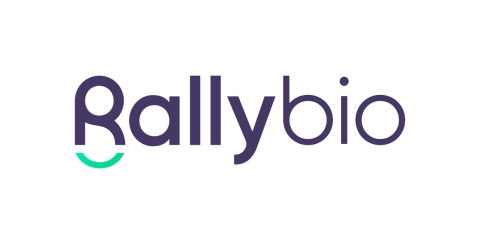Rallybio Reveals Details of Two Pipeline Programs with the Potential to Transform the Lives of Patients with Rare Diseases
Rallybio Reveals Details of Two Pipeline Programs with the Potential to Transform the Lives of Patients with Rare Diseases
- RLYB212: A Novel Monoclonal HPA-1a Antibody for the Prevention of a Potentially Life-Threatening Rare Disease that Impacts Fetuses and Newborns –
- RLYB116: A Novel Small Protein Inhibitor of Complement C5 for the Treatment of Patients with Severe and Rare Diseases of Complement Dysregulation -
NEW HAVEN, Conn.--(BUSINESS WIRE)--Rallybio, a clinical-stage biopharmaceutical company committed to identifying and accelerating the development of life-transforming therapies for patients with severe and rare disorders, today announced the details of two previously undisclosed pipeline programs. RLYB212 is a novel monoclonal antibody to human platelet antigen (HPA)-1a in preclinical development for the prevention of fetal and neonatal alloimmune thrombocytopenia (FNAIT), a potentially life-threatening rare disorder that can cause uncontrolled bleeding in fetuses and newborns. RLYB116 is a small protein inhibitor of complement factor 5 (C5) suitable for subcutaneous administration in preclinical development for the treatment of patients with severe and rare diseases of complement dysregulation. Rallybio plans to submit clinical trial applications for both RLYB212 and RLYB116 in the second half of 2021.
“The advancement of our RLYB212 and RLYB116 programs underscore our unwavering commitment to developing innovative medicines,” said Martin Mackay, Co-Founder and Chief Executive Officer, Rallybio. “By combining the promise of our carefully-selected assets with the deep expertise of our team, we hope to make a significant impact on the lives of patients suffering from severe and rare disorders.”
RLYB212 for the Prevention of FNAIT
RLYB212 is a subcutaneously administered novel monoclonal anti-HPA-1a antibody. This is the second product candidate in Rallybio’s FNAIT portfolio, which also includes RLYB211, a plasma-derived polyclonal HPA-1a antibody. Like RLYB211, administration of RLYB212 to expectant at-risk mothers is designed to rapidly eliminate antigenic fetal platelets from the mother’s circulation and prevent maternal alloimmunization. The prevention of maternal alloimmunization eliminates the risk of FNAIT in the fetus.
FNAIT is a disorder that can occur during pregnancy and is caused by an incompatibility between mother and fetus of a specific HPA, most commonly HPA-1. This incompatibility can cause an expectant mother to develop antibodies that attack the platelets of her fetus. The destruction of platelets in the fetus can result in severe thrombocytopenia, potentially leading to intracranial hemorrhage (ICH). The consequences of ICH can be devastating, and include miscarriage of the fetus, loss of the newborn, and severe lifelong neurological disability in those babies who survive. There is currently no approved therapy for the prevention or treatment of FNAIT.
“There is a critical need to provide mothers and babies at risk of FNAIT with a safe and effective therapeutic for the prevention of this terrible disorder,” said Steve Uden, Co-Founder and Chief Operating Officer, Rallybio. “RLYB212 further highlights our commitment to ensuring that we are able to achieve our goal of eradicating FNAIT resulting from HPA-1a incompatibility.”
RLYB211 is currently being evaluated in a Phase 1/2 single-blind, placebo-controlled proof-of-concept study designed to establish the dose of RLYB211 that will rapidly clear HPA-1a positive platelets transfused to HPA-1a negative healthy male participants. Topline data from the first cohort of the study is expected in mid-2021. The submission of an Investigational New Drug (IND) application for RLYB212 is expected in the second half of 2021.
Rallybio acquired RLYB211 and RLYB212 from Prophylix AS. Both product candidates have received Orphan Drug Designations from the U.S. Food and Drug Administration (FDA) and the European Medicines Agency, and Rare Pediatric Disease designations from the FDA.
RLYB116 for Diseases of Complement Dysregulation
RLYB116 presents a unique opportunity for the Rallybio team to utilize its deep experience in successfully designing, developing, and delivering complement inhibitors to patients with rare diseases. RLYB116 is an innovative antibody mimetic with small molecular size designed to produce rapid, complete, and sustained inhibition of C5. Specifically, RLYB116 is a fusion protein with specificity for C5 and albumin and is suitable for subcutaneous administration. The Affibody® domain of RLYB116 binds with high affinity to C5, thereby inhibiting terminal complement activation, while the Albumod™ technology, including the albumin-binding domain (ABD), binds to serum albumin thereby extending the plasma half-life of the protein. Rallybio expects to submit a clinical trial application for RLYB116 in the second half of 2021.
Dysregulation of the complement pathway has been implicated in the pathogenesis of a growing number of diseases, making it an attractive target for therapeutic intervention. Rallybio intends to develop RLYB116 for patients with severe and rare diseases of complement dysregulation.
“With our deep expertise in the area of complement, we have long been intrigued by the idea of a structured protein of small molecular size with the potential to produce rapid, complete and sustained inhibition of C5,” added Steve Uden. “We view C5 as the optimal target for diseases of complement dysregulation given that it is the final common step in the complement cascade. With RLYB116, we expect to make significant strides on behalf of patients globally who are suffering from complement-mediated rare diseases.”
Rallybio acquired RLYB116 from Swedish Orphan Biovitrum (Sobi™). RLYB116 was designed by Affibody AB in collaboration with Sobi.
About Rallybio
Rallybio is a clinical-stage biopharmaceutical company focused on identifying and accelerating the development of life-transforming therapies for patients with severe and rare disorders. Since its launch in January 2018, Rallybio has built a portfolio of promising product candidates, which are now in development to address rare diseases in the areas of hematology, immuno-inflammation, and metabolism. The Company’s mission is being advanced by a team of highly experienced biopharma industry leaders with extensive research, development, and rare disease expertise. Rallybio is headquartered in New Haven, Connecticut, with an additional facility at the University of Connecticut’s Technology Incubation Program in Farmington, Connecticut. For more information, please visit www.rallybio.com.
Contacts
Investor Contact
Steven Tuch
415-218-0697
stuch@rallybio.com
Media Contact
Tara DiMilia
908-369-7168
Tara.dimilia@tmstrat.com
